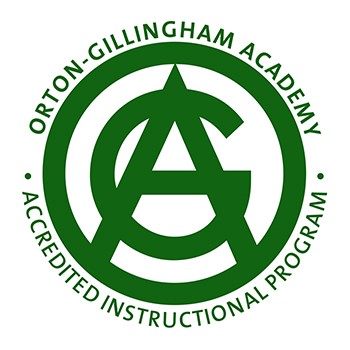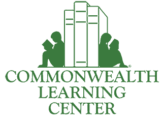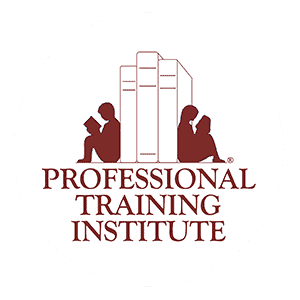Proven Methodologies
Multisensory phonics-based methods are essential for those students, estimated at 15 to 20% of the school population, who have difficulty with traditional whole language reading instruction.
Multisensory methods have proved to be effective for dyslexic students and those with difficulties in language and memory. We match each student with a specific multisensory methodology to best address his or her needs.
The multisensory methodologies we offer include Orton-Gillingham, Project Read®: Report Form and Story Form, the Lindamood Phoneme Sequencing® (LiPS®) Program and the Nancibell® Visualizing and Verbalizing® Program. These structured techniques are used to remediate reading and spelling difficulties.
The multisensory programs we offer include Orton-Gillingham, Project Read® Reading Comprehension, the Lindamood Phoneme Sequencing® (LiPS®) Program and the Nancibell® Visualizing and Verbalizing® Program. These structured techniques are used to remediate reading and spelling difficulties.
The Commonwealth Learning Center is an independent, non-profit teaching facility and is not affiliated with Lindamood-Bell Learning Processes, Pat Lindamood, Phyllis Lindamood, or Nanci Bell.
Orton-Gillingham
The Orton-Gillingham method, based on sound theoretic principles, is a systematic, multisensory, and phonetically based approach that is highly effective for teaching reading, spelling and handwriting to learners of all ages. This diagnostic method analyzes a student’s strengths and weaknesses and can help those who have not succeeded using other reading methods. It can be used to teach both beginning readers and those who have some “holes” in their knowledge and skills. Structured and sequential teaching ensures that the individual experiences continuous and visible success.
The Orton-Gillingham approach to language instruction addresses the simplest sound-symbol relationships and logically integrates the auditory, visual and kinesthetic elements to reinforce optimal reading and spelling skills. Students learn the basic building blocks of theEnglish language – the phonemes – and then progress to syllables and word parts such as prefixes, roots, and suffixes. In spelling, they learn the many spelling rules that govern the language. The Orton-Gillingham lesson plan integrates reading and spelling skills and builds in continuous practice and review. Students progress from the smallest elements of the language to reading books and applying their spelling skills when writing sentences.
|
This method is particularly effective for students who:
|
 |
[expand title=””]Learners visit our tutoring centers from a wide range of locations. Following are some of the most common:
Beverly, Boxford, Brookline, Danvers, Dedham, Dover, Hamilton, Lynnfield, Marblehead, Middleton, Milton, Natick, Needham, Newton, North Reading, Norwood, Peabody, Reading, Salem, Topsfield, Wakefield, Waltham, Watertown, Wayland, Wellesley, Wenham, West Roxbury, Weston, Westwood, Wilmington[/expand]
Project Read® Report Form
Project Read®: Report Form teaches students to analyze the structure of expository writing. Students learn how to differentiate between main ideas and details. Oral and written expression of main ideas, details, and summaries are woven into each lesson, providing guided and independent practice. This program helps students organize information in a meaningful way so that they can store and retrieve it easily. Teachers introduce concepts and skills sequentially and use multisensory strategies and materials. Students grade two through adult will gain skills to use language effectively.This method is particularly effective for students who:
- Struggle to distinguish the main idea from details
- Have difficulty with complex thinking skills such as drawing conclusions, inferring, and predicting outcomes
- Struggle to distinguish the main idea from detail
- Have difficulty with complex thinking skills such as drawing conclusions, inferring, and predicting outcomes
- Have difficulty analyzing a story into its parts
Project Read® Story Form
Project Read®: Story Form teaches students to identify and interpret the elements of fiction such as characterization, setting, theme, plot, conflict, climax, and resolution. Teachers guide students to manipulate story pieces that symbolize the underlying structure of fiction. Students learn how to apply critical thinking skills.
This method is particularly effective for students who:
- Have difficulty with complex thinking skills such as drawing conclusions, inferring, and predicting outcomes
Have difficulty identifying the structural elements of fiction and analyzing the significance of each element
Lindamood Phoneme Sequencing® Program
The Lindamood Phoneme Sequencing® (LiPS®) Program provides specific instruction for students with weak phonemic awareness. Phonemic awareness is the ability to process the individual sounds, or phonemes, within spoken words. Students who cannot judge the sequence of sound units within spoken words cannot grasp the alphabetic principles upon which English reading and spelling are based. When reading, speaking, or spelling, they often add, omit, or reverse sounds in words. Research indicates that strong phonemic awareness is the foundation for reading and spelling success.
The LiPS® program teaches students to feel the actions of their lips, tongues, and vocal cords, and to notice and label them. Using this new ability to “feel sounds,” students learn to count, identify, and order sounds within words. They then use this “motor kinesthetic feedback” to read and spell. The LiPS® program enables children and adults to analyze , often for the first time, about how to read and spell.
This method is particularly effective for students who:
- Add, omit, or struggle to sequence word sounds when reading or speaking
- Add or omit letters or syllables when reading or speaking
- Avoid reading and are reluctant to read aloud
- Write with simpler words than they use when speaking
The Commonwealth Learning Center is an independent, non-profit teaching facility and is not affiliated with Lindamood-Bell Learning Processes, Pat Lindamood, Phyllis Lindamood, or Nanci Bell.
Nancibell® Visualizing & Verbalizing® Program
The Nancibell® Visualizing and Verbalizing® Program for Language Comprehension directly teaches students how to better understand and remember language. Many students who experience difficulty with language comprehension (oral or written) are not forming mental images from the words they read and hear. They tend to grasp “parts” of oral and written language, such as a few facts or details, rather than the main idea. This is referred to as weak concept imagery.
The Nancibell® Visualizing and Verbalizing® Program strengthens an individual’s concept imagery. Students learn how to make mental images as they read or listen to text; images help students formulate the main idea and supporting details. The student begins by verbalizing descriptions of pictures and then progresses, as mastery is achieved, to imaging words, single sentences, multiple sentences, whole paragraphs, and finally, to entire sections of text. The program improves reading comprehension, oral language comprehension, and oral language expression. Ultimately, the goal of the program is for students to transfer skills to their academic studies. To help ensure this transfer, we also teach note-taking and critical thinking skills.
This method is particularly effective for students who:
- Accurately read isolated words
- Often must reread to understand
- Have difficulty sequencing information
- Words seem to “go in one ear and out the other”
- Are unable to remember information for quizzes and tests
- Have trouble following multi-step oral or written directions
The Commonwealth Learning Center is an independent, non-profit teaching facility and is not affiliated with Lindamood-Bell Learning Processes, Pat Lindamood, Phyllis Lindamood, or Nanci Bell.
Sign Up to Stay in the Know!
Workshops, Programs, Announcements and More




